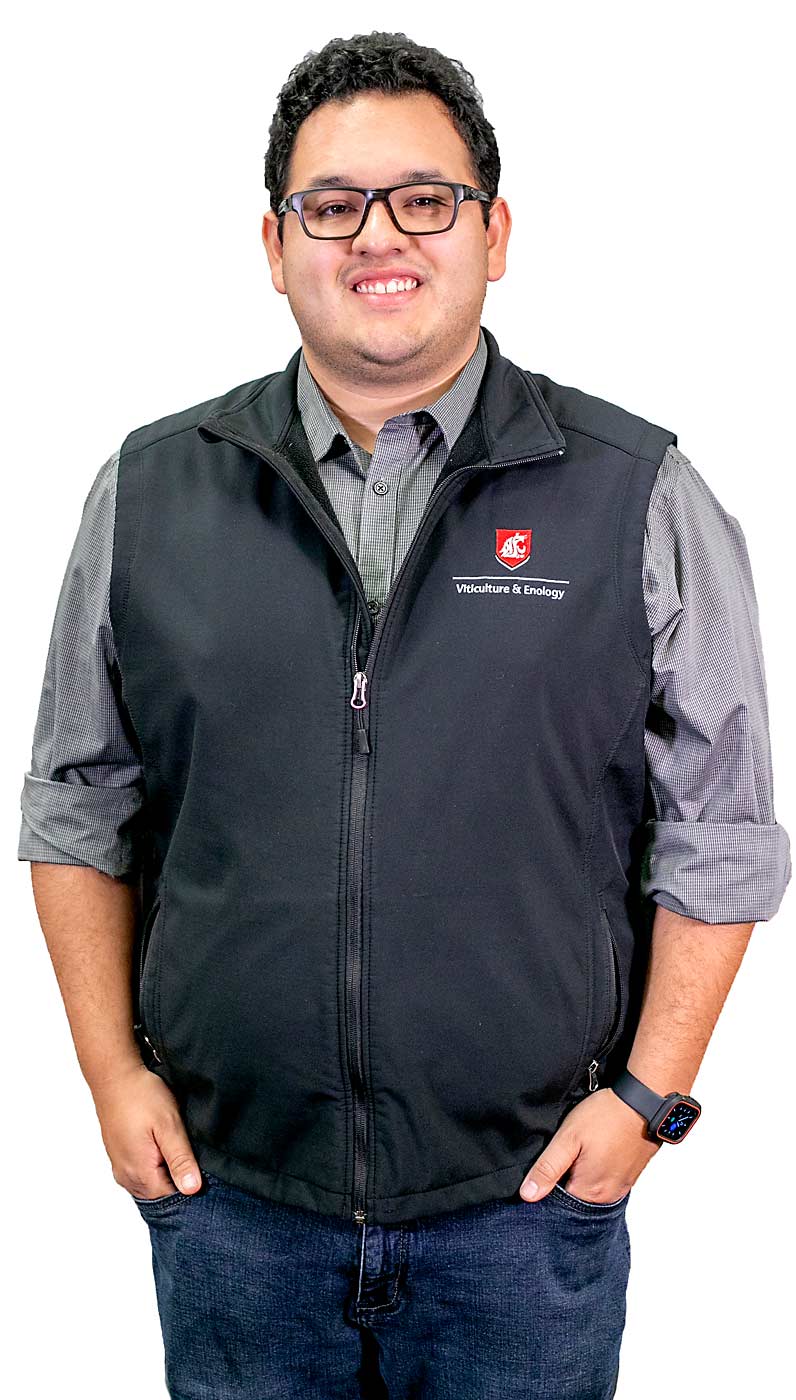family background/Francisco grew up in the Wenatchee Valley and graduated with a viticulture and enology degree from Washington State University. He’s a second-generation farmer and the son of Margarita and Francisco Sarmiento.
age/24
grower/East Wenatchee, Washington
crops/Apples, cherries, diversified crops
business/Olsen Bros. Ranches
How did you get your start?
I grew up around agriculture, and when I finished high school, I decided to pursue a teaching degree from Wenatchee Valley College. At that time, I also attended a few horticulture classes and discovered that ag was my true passion. From there, I worked to learn the practical side of farm businesses and transferred to WSU to pursue a viticulture and enology degree.
Why change degrees to pursue ag?
My father and teachers encouraged me to continue with my education and mentioned that I should try the viticulture side of the industry. They said there were career opportunities in viticulture.
Going through community college is a stepping-stone to pursue a four-year degree or other path into agriculture. Some of our classes would take us on field trips to see orchards, warehouses, nurseries and we would meet people who could be potential employers.
Part of the college’s program supports job shadows. One of those opened a door to my job working at Kyle Mathison Orchards after my associate degree. The next year I was honored to host other WVC students during an orchard tour. It was pretty cool to see the next group of students learning about the ag industry.
What are you doing now in your new job?
Now that I’m working with Olsen Bros. Ranches, I’ve been able to apply my past experiences and education. One of the most important lessons I’ve learned is planning and site selection before planting a new orchard.
Ordering the right amount of plants for the spacing you want and getting everyone on board is a big deal. Preparing our plan of attack is crucial when working with your team so everyone can execute as well as possible. From simple tasks such as pruning to planting a new block, I’ve got to keep learning.
Any unexpected challenges?
There are several things I’ve done this year that I didn’t expect to learn, such as scouting and flagging for little cherry virus symptoms, learning to manage the spray program and making sure the necessary applications go smoothly. I’m definitely getting my hands dirty every day with all of the tasks at work.
What new skill do you highly value?
Knowing how to scout is one of the most important skills because you’re out in the field looking for what you can do better or what may need fixing. It goes beyond just finding things that need fixing, or what’s wrong — it’s also good seeing the things that you’re doing right.
What do you enjoy about your job?
I enjoy making sure the crews were taught correct pruning methods, especially if they’re a new employee. Once spray season starts, I make sure the drivers have the proper safety gear, equipment and necessary applications, then get back to the office to process the paperwork and spray records. I do enjoy the ride as the season goes by. I work mostly with apples and cherries, however if we’re in blueberry or wine grape harvest and I can help, then I’m always ready.
What would you tell younger growers about ag?
Going into the ag industry is one of the most rewarding things that I’ve done. I want Washington growers to produce the highest quality fruit. We’re known for our famous apples and I want to be part of continuing that tradition and become an integral part of the industry.
—by TJ Mullinax







Leave A Comment